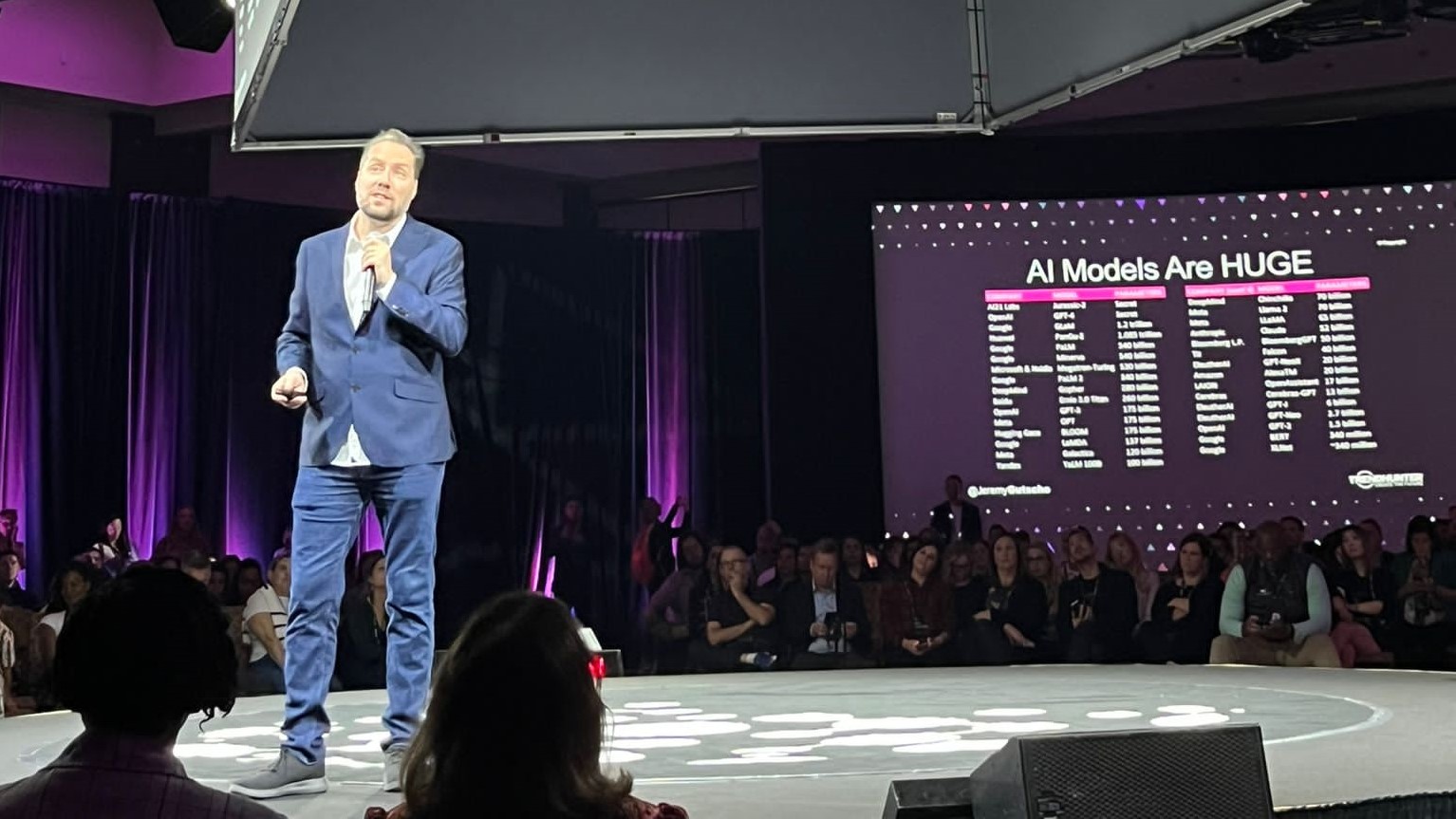Future Festival 2023: Embracing AI and Its Advances

By Janice Saji
Artificial Intelligence (AI) became an increasingly hot topic of discussion in 2023, with ChatGPT demonstrating how easily accessible the technology has become. Whether you want to write an essay, get a diet plan, fix a bug in your code or create an entire movie based on a single prompt, AI tools can almost help you do it all.
The popularity of these tools has shed light on the convenience of this technology and has resulted in companies scrambling to integrate AI to automate their work processes.
However, this rapid takeover has raised concerns about whether AI will end up taking away people’s jobs. Reports of companies laying off their support staff for AI-powered chatbots and tools have only added to these worries.
So, being the research and innovation hub at Humber College, we decided to learn more about AI to explore possible outcomes of this technology.
In late September of 2023, some team members of Humber’s Office of Research & Innovation (ORI) attended Future Festival 2023, a three-day conference featuring some of the world’s leading voices on AI. Representing ORI were Anju Kakkar, Managing Editor of Humber Press; Raeshelle Morris, former Innovation Program Manager; David Weisz, Director of StoryLab; Camila Perez Pena, Strategic Innovation Manager; Harleen Sachdeva, Project Manager of CFI, B²C Lab; Saran Davaajargal, Editor of Humber Press; Müge Abac, PhD, Project Analyst; and Janice Saji, Project Coordinator.
Exploring the current stage of AI
Jeremy Gutsche, CEO of Trend Hunter and host of Future Festival, shared that the decrease in employment isn’t the only concern related to AI. The technology has also increased concerns regarding rising crimes such as impersonation, bank fraud, voice authentication scams and deep-fake-driven ransoms.
So, what should we do? According to Jeremy, the decision lies in a single thought: “Disrupt or be disrupted.” He noted that AI is predicted to be an inflection point that will completely transform society, just like previous inflection points, such as fire, farming and electricity. Rather than shying away from technology, companies should embrace AI to automate or enhance certain parts of their jobs to improve efficiency. The key, he said, is to use AI to make life easier.
This idea was reflected through real-life examples shared by guest speakers and panelists at the event, including Deborah Amato, Chief of the New Opportunities Office at NASA; Doug Warner, Head of Business Innovation at Amazon; Helen Holder, Chief Technologist for HP Personal Systems; Tammy Butterworth, Front End Innovation Lead at Pepsi; and Megan Kachur, Senior Manager of Creative Retail Trend Forecasting at Disney. The speakers shared examples of how their companies used AI to enhance their jobs, increase productivity and foster innovation within their teams.
Riding AI’s wave of evolution
Although Jeremy’s statement “Disrupt or be disrupted” may sound a bit ominous, the message is clear—the integration of AI into everyday life is inevitable. After all, many of us already use artificial intelligence to automate small tasks like transcribing audio, editing text, responding to emails with auto-generated replies and providing customer service through chatbots.
According to Jeremy, the debate regarding AI’s role in increasing unemployment boils down to people’s ability to use the tool. He emphasized this point with a quote from Jensen Huang, the CEO of Nvidia— “AI won’t steal jobs, but someone who’s an expert in AI will.”

